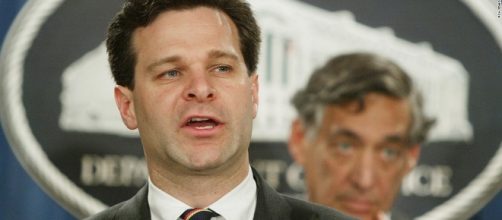While all eyes seem to be glued on the current controversy surrounding Donald Trump Jr., another controversy has reached a denouement. Christopher Wray, President Trump’s pick to be the new FBI chief, recently offered testimony before the Senate Judiciary Committee.
Well-suited to the job
Wray has what President Donald Trump called “impeccable credentials.” Trump is correct in that respect. After graduating from Yale University in 1989, Wray earned his J.D. from Yale Law School in 1992. He went on to become the assistant attorney general in George W.
Bush’s administration, unanimously confirmed by the Senate in 2003. After leaving public office in 2005, Wray worked for a private law firm, famously serving as New Jersey Governor Chris Christie’s defense attorney in the Bridgegate Scandal.
I will be nominating Christopher A. Wray, a man of impeccable credentials, to be the new Director of the FBI. Details to follow.
— Donald J. Trump (@realDonaldTrump) 7 June 2017
Not an easy task
Wray’s impeccable credentials alone might not be enough to help him outmaneuver the many obstacles that will come his way should he become the new FBI Chief. Speculative statements released by James Comey, the former FBI chief, in the weeks before the 2016 presidential elections implicated the Bureau in the tumultuous politics that have rocked the country since.
Comey was relieved from his position in May under a cloud of suspicion after Trump said that Comey was not able to "effectively lead the bureau." Comey has now appeared before the Senate Intelligence Committee on multiple occasions to testify about his findings concerning Russian involvement in last year’s election, as well as his relationship with the Trump administration.
Luckily for Wray, the job of investigating Russian involvement has unceremoniously been placed in the lap of Robert Meuller. Mueller is a special prosecutor picked specifically for the task. However, while the Russia debacle might be out of his hair, Wray still has to figure out a way to allow the FBI to regain the trust of its members, and most critically the American people.
In an administration plagued by scandal, this might be the toughest task of all.
In the hot seat
During the nearly five-hour hearing, Wray made sure to highlight his prerogative to lead the FBI as an independent agency, removed from political pressure. "If I am given the honor of leading this agency," Wray said, "I will never allow the FBI’s work to be driven by anything other than the facts, the law and the impartial pursuit of justice."
Regardless, he was pressed by the senators on the committee to assert his independence. Lindsey Graham (R–S.C.). was particularly persistent, asking him directly about whether or not Trump Jr. should have taken a meeting with a Russian correspondent bearing damaging information about the Clinton campaign.
Wray responded that he should have not, also contradicting Trump’s claim that a “witch hunt” was being leveled against Trump Jr.
When asked about his possible response to a hypothetical request from the president to perform an illegal action, Wray replied, “first I would try to talk him out of it, and if that failed I would resign.”


